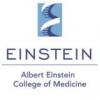Einstein Immuno-Technology Core
Overview
The new Immuno-Technology Core (ITC) has been conceived as an education, coordination and service core that offers access to advanced cellular, imaging and immunomodulation technology platforms operated across both Einstein and Mount Sinai. Specifically, the ITC supports experimental design, execution and analysis for investigations that seek to employ a tailored approach to mass cytometry; multiplexed tissue imaging, automated tissue staining and whole slide image acquisition; biophotonic in vivo imaging; and immunomodulatory T cell targeting through synTAC technology.
Objectives
To meet the complex demands for tailored assay development, performance and interpretation, the ITC will harness the combined technology infrastructure at Einstein and Mount Sinai for the following principal objectives:
- To raise awareness about select cellular, imaging, and immunomodulation technology platforms; to provide consultation and advice about the potential and limitations of respective technologies; to assist investigators with experimental planning, design and considerations about expected financial investments; and to facilitate interactions with managers, application scientists and data analysis specialists working with each technology platform.
- To provide support services required for the effective and efficient implementation of tailored experimental protocols including specific reagent selection, testing and validation; protocol adjustment and optimization; and integration with established assay workflows.
- To facilitate access and provide practical support for the usage of advanced technology platforms.
Services
Cellular (Mount Sinai): High Dimensional Mass Cytometry / Cytometry by Time Of Flight (CyTOF)
Mass cytometry combines the high-throughput single cell analysis capabilities of flow cytometry with the specificity and resolution of mass spectrometry for a broad and detailed characterization of heterogeneous cell samples according to ~50 discrete parameters at the single-cell level. Sample processing, staining, acquisition and basic QA/QC are performed and administered through the Mount Sinai Human Immune Monitoring Center (HIMC).
Due to the fundamentally modular nature of the assay technology, specific experimental strategies need to be precisely tailored according to the nature of biological samples, preferred composition of antibody staining samples, sample processing protocols, data analysis requirements, and potential need for training. Thus, unless noted otherwise, overall cost estimates can be developed only in detailed discussions with interested investigators and typically align with the similarly tailored fee schedules implemented by HIMC.
The ITC provides individualized consultation about specific experimental design, execution and analysis that is free of charge.
Tissue imaging (Mount Sinai):
The ITC provides individualized access to three tissue staining platforms covering a multiplexed tissue staining approach, automated tissue staining, and whole slide image acquisition.
- MICSSS platform (multiplexed immunohistochemical consecutive staining on a single slide)
- Automated tissue staining (Leica BOND RX Automated IHC Research Stainer)
- Whole slide image acquisition (Hamamatsu NanoZoomer S60 Digital Slide Scanner)
In vivo imaging (Einstein and Mount Sinai): IVIS Spectrum In Vivo Imaging System
The ITC will coordinate access and usage of two Perkin Elmer IVIS Spectrum biophotonic imaging systems, one located in Einstein’s In Vivo Imaging System Facility and the other in Mount Sinai’s Translational and Molecular Imaging Institute. The IVIS Spectrum enables longitudinal three-dimensional intravital imaging of small animals or tissues expressing or containing bioluminescent or fluorescent probes across the blue to near-infrared wavelength region. The instrument is equipped with a high-sensitivity charge-coupled device camera which is ideal for imaging single or multiple probes or reporters.
Immunomodulation (Einstein): synTac platform (artificial immunological synapse for T cell activation; unique technology developed at Einstein)
ES-DRC member and Einstein investigator Dr. Steven Almo recently developed innovative reagents to manipulate disease-relevant T cells under a variety of conditions, including type 1 diabetes. Termed synTacs (for “artificial immunological synapse for T cell activation”), these inventive reagents are soluble, precision biologics in which non-exchangeable single-chain peptide-class I MHC (pMHC) is covalently linked to a modulatory domain (e.g., PD-L1, a ligand for the T cell-inhibitory checkpoint receptor PD-1) in a manner that recapitulates the proximity, orientation, and overall organization experienced at the immunological synapse. This strategy not only allows for the explicit targeting of disease-relevant T cells, but also greatly reduces the devastating side effects associated with the global immune modulation directed by all biologics currently in the clinic. Given the emergent, early-stage, and cutting-edge nature of the synTac technology, ES-DRC investigators utilizing these reagents will initially do so in collaboration with ITC Co-Director Dr. DiLorenzo and/or Dr. Almo as appropriate, in order to maximize the likelihood of success of the research.
